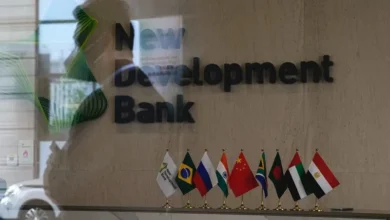World Bank forecasts low economic growth in MENA amid rising conflict in the region

Countries in Middle East and North Africa (MENA) are expected to witness low economic growth “akin to the period prior to the pandemic,” amid rising uncertainty due to the war in Gaza and lack of structural reforms in the region, the World Bank said in its latest report on the region’s economy.
The MENA’s GDP is forecast to rise 2.7 percent in 2024, a slight increase from 1.9 percent in 2023. According to the report, oil-importing and oil-exporting countries are likely to grow at less disparate rates than in 2022, when higher oil prices boosted growth in oil-exporting countries.
For countries in the Gulf Cooperation Council (GCC), the uptick in growth reflects expectations of robust non-oil sector activity and the fading out of oil production cuts toward the end of the year. The report said GDP in almost all oil-importing countries is expected to decelerate.
Impact of Gaza war
Nearly all economic activity in Gaza has come to a standstill, with the GDP in the besieged enclave dropping by 86 percent in the last quarter of 2023. The West Bank has also plunged into recession due to simultaneous public and private sector crisis.
According to the report, the economic impact of the conflict on the rest of the region has remained “relatively contained, but uncertainty has increased.”
Highlighting the crisis faced by the shipping industry in the Red Se, the report said that the industry has coped with shocks to maritime transport due to Houthi attacks by rerouting vessels away from the Red Sea, but any prolonged disruptions to the routes through the Suez Canal could increase commodity prices regionally and globally.
The World Bank report warned against the rising indebtedness in the MENA region, mainly in oil importing countries who now have a debt-to-GDP ratio that is 50 percent higher than the global average of emerging markets and developing economies.
The report also reflected on the economic challenges to oil exporting countries – economic and fiscal revenue diversification, given the structural changes in global oil markets and the rising demand for renewable sources of energy.










